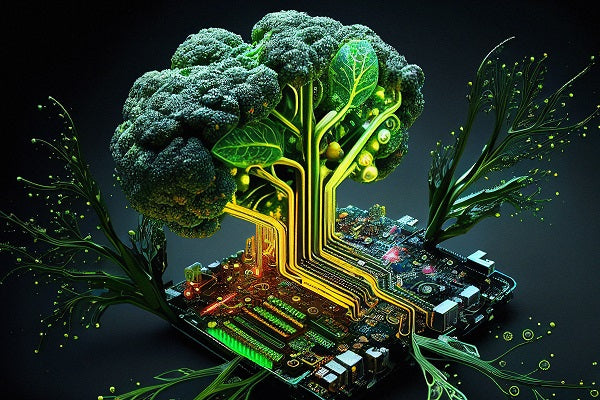Bioengineered Foods: What You Need to Know
Posted by Anthony Altieri on
When shopping at your local grocery store, it is now very common to look at a food label and see this statement: THIS PRODUCT CONTAINS BIOENGINEERED FOOD INGREDIENTS. What exactly does that mean and are these food ingredients safe? Let's take a look...
Bioengineered foods, more commonly referred to as genetically modified organisms (GMOs), have long been an issue of debate. With advances in biotechnology, there are now new methods available to modify organisms for desired traits - though opinions differ as to their safety, necessity, and ethical ramifications. This post seeks to cover both sides of this debate concerning bioengineered food products.
Positive Points About Bioengineered Foods:
Enhance Nutritional Content: Genetic modifications can result in foods with increased nutritional profiles. For instance, certain rice strains have been engineered to contain more vitamin A to provide more protection to populations at risk of deficiency.
Bioengineered crops can be designed to resist certain pests and diseases, reducing chemical pesticide use while contributing to more sustainable agriculture practices.
Enhance Shelf Life: Genetic modifications may extend the shelf life of fruits and vegetables, helping reduce food waste.
Environmental Advantages: Certain genetically engineered crops use less water, making them ideal for regions facing water scarcity.
Increased Yield: Bioengineered crops may increase yield per acre and potentially help address global food shortages.
Reducing Reliance on Chemicals: Bioengineered foods don't always contain more antibiotics or steroids than their non-bioengineered counterparts.
Negative Aspects of Bioengineered Foods:
Health Concerns: Although studies indicate the safety of GMOs, public opinion continues to express alarm over their long-term health impacts; in part driven by media reports and information found online.
Environmental Effects: While GMOs may reduce chemical usage, others could increase it, raising environmental concerns.
Loss of Biodiversity: Genetically modified crops could threaten native varieties and lead to reduced biodiversity, leading to loss of biodiversity.
Economic Effects on Small Farmers: Patenting genetically modified seeds may make them too costly for smaller-scale farmers, increasing disparity.
Ethical Considerations: Some have raised ethical concerns over genetic modifications of organisms as it amounts to playing God and may raise new ethical dilemmas.
Labeling and Transparency: Under the National Bioengineered Food Disclosure Standard, bioengineered food labeling is mandated. However, sometimes such labels can appear more as marketing strategies than genuine efforts towards transparency.
Public Perception: According to studies, GMO foods often come across negatively during discussions; making it hard for us to have an impartial dialogue on this subject matter.
Bioengineered food debate is complex, involving scientific evidence, ethical considerations, and individual preferences. Therefore, research must continue and discussions take place around this issue in order to ensure safe and sustainable food sources for future generations.
References:
- Consumer Perception of Genetically Modified Organisms ...
- What is a bioengineered food and why do some food ...
- National Bioengineered Food Disclosure Standard
- What is a bioengineered food? - Agricultural Marketing Service
- What is Bioengineered Food?
- Scientific Knowledge Shaping Perceptions of Bioengineered ...




 Verified Purchase
Verified Purchase



